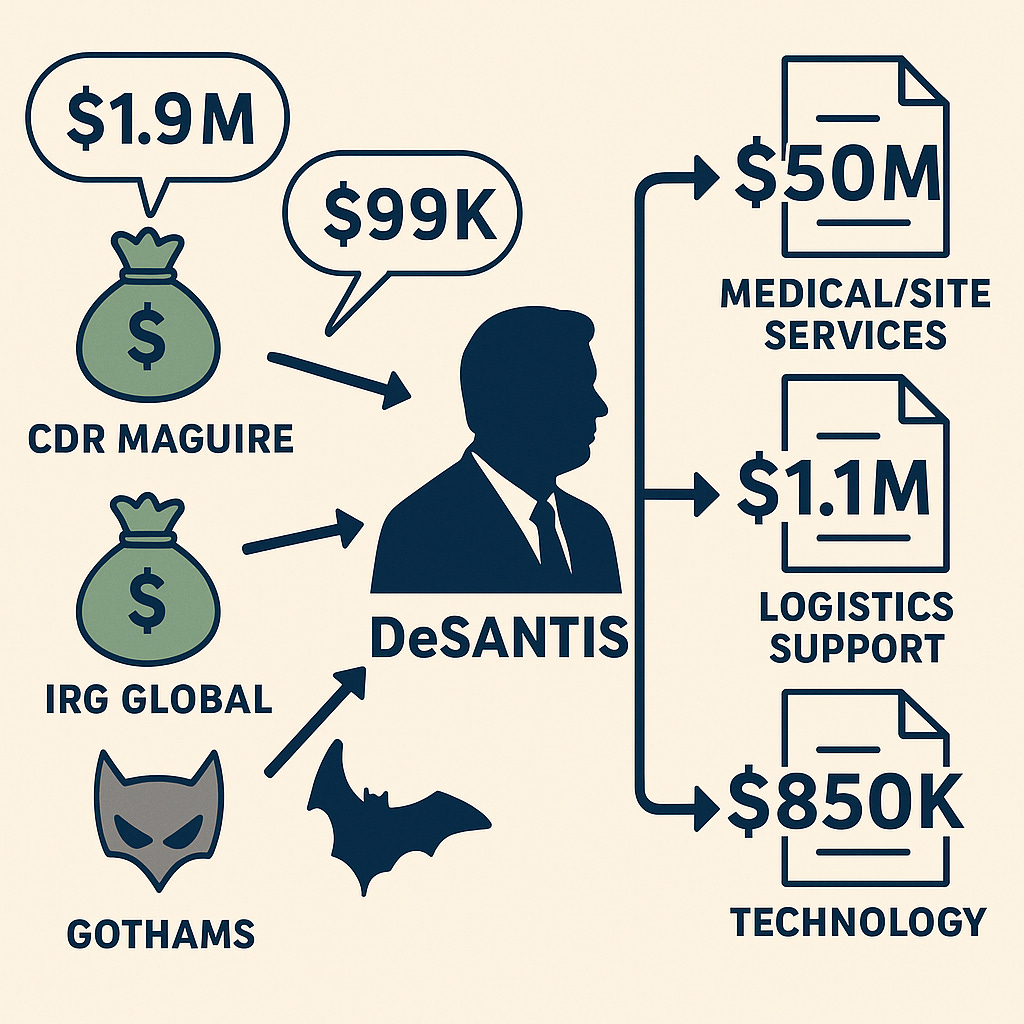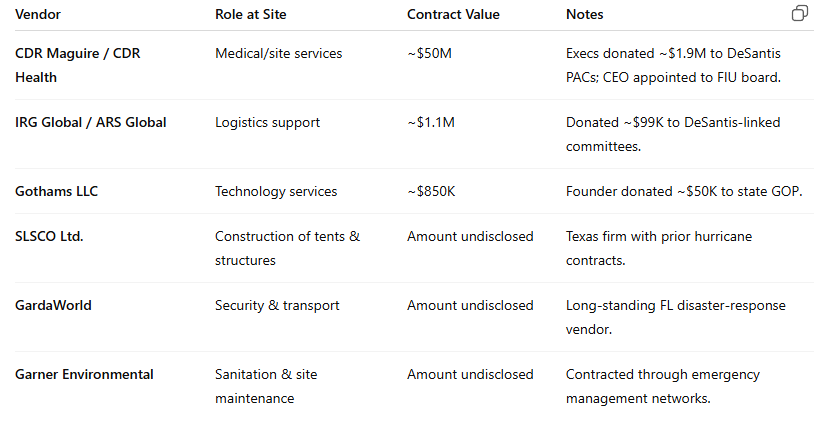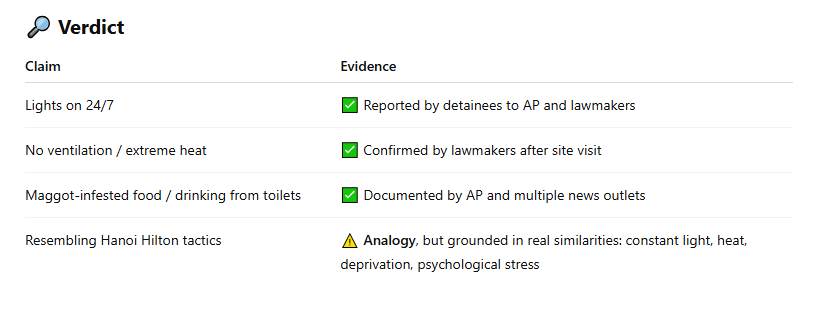Immigration Emergency?
When Governor Ron DeSantis declared an “immigration emergency” in 2023, Florida’s Division of Emergency Management sprang into action. Within weeks, a sprawling detention site — quickly nicknamed Alligator Alcatraz — rose in the Everglades: tents, razor wire, portable sanitation, and armed private security.
The public was told it was about “public safety.”
The ledgers tell a different story.
The Pay‑For‑Play Pattern
Under emergency powers, the state bypassed competitive bidding and handed out contracts to companies with deep political ties. These firms are not traditional detention operators — most come from disaster response, logistics, or medical contracting — but they do share one thing in common: they’ve all poured money into DeSantis‑aligned PACs and Florida GOP committees.
ICE Is Paying the Bill
DeSantis likes to posture that Florida “went it alone” on immigration enforcement — but the money trail says otherwise.
Florida may have signed the contracts and picked the vendors, but federal immigration dollars are funding the machine and ICE is calling many of the shots behind the scenes:
ICE dollars fuel it:
Florida’s Division of Emergency Management openly projects hundreds of millions in reimbursement from ICE and FEMA for the cost of Alligator Alcatraz (Insurance Journal).
“We expect about $450 million in reimbursements annually,” a state budget analyst told reporters.
ICE directs it:
Despite the state contracting private vendors, guards are following ICE detention protocols. Multiple lawmakers who toured the site reported seeing ICE personnel on‑site giving operational guidance (Politico).
“These aren’t just state rules — these are ICE rules being enforced by state‑hired guards,” said one official after visiting.
No accountability:
The result is a Frankenstein system: Florida gets to claim political credit for being “tough on immigration,” while ICE funnels in federal dollars — all while vendors with deep political donations are cashing out on no‑bid contracts. And because of this state‑federal handshake, it’s almost impossible for detainees or the public to know who’s ultimately responsible when abuses happen.
🏗️ Who Built Alligator Alcatraz?
Sources: AP, Insurance Journal, Tampa Bay Times
💰 Follow the Money: Donations vs. Contracts
That’s a return on investment any hedge fund would envy…
Guards Get Food Trucks, Detainees Get Worms🤮🤢
While human beings inside Alligator Alcatraz report worms in their food and wastewater on the floors (AP), the workers running the camp are being served by food trucks brought in through the same emergency‑vendor networks.
Each has since scrambled to issue statements:
Kona Ice claimed the truck was run by a local franchisee “booked by an unknown agency.”
ChurroMania said they “have no political agenda.”
Ms. Cheezious said they were hired by a disaster‑response contractor to feed “service members.”
Elote Lovers apologized, saying they “do not support oppression or injustice.”
Che Grill has not issued a detailed explanation but appeared in the same viral footage driving into the site.
Some of these brands — like ChurroMania, Ms. Cheezious, and Elote Lovers — have deep roots in Latino‑owned small businesses. Which makes their presence in service to a system oppressing other marginalized communities even more complicated and heartbreaking.
And here’s the kicker: the contracting agency knew.
They knew enough to hide the true nature of the event, to disguise the booking as something else, to make sure no one asked too many questions.
That deliberate misdirection is part of the rot—the state’s network of vendors creating plausible deniability so the machine keeps running, churros and all.



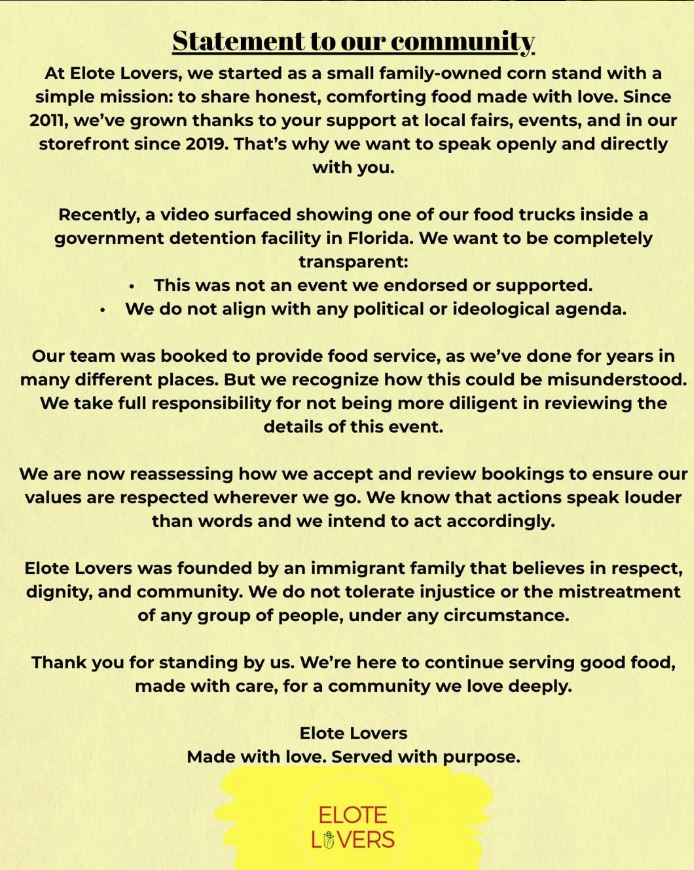
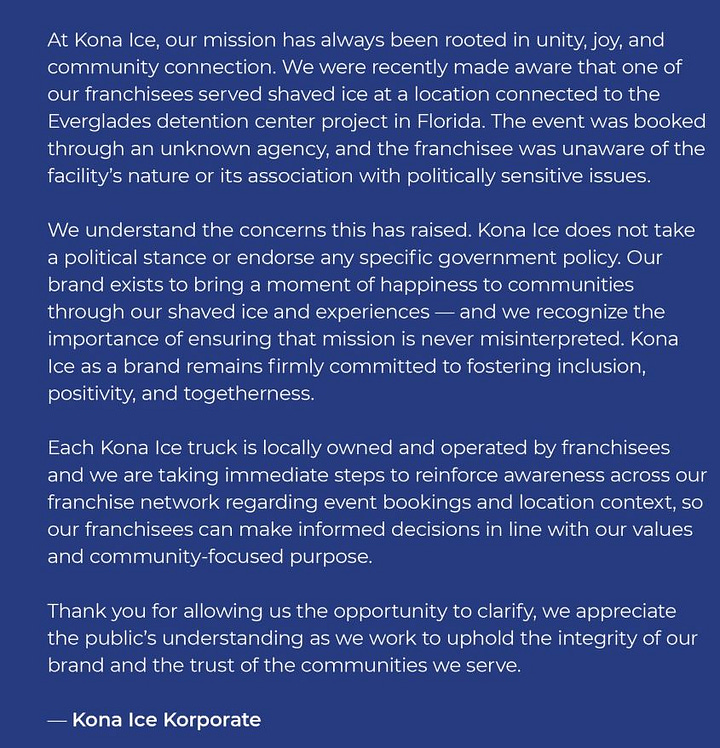
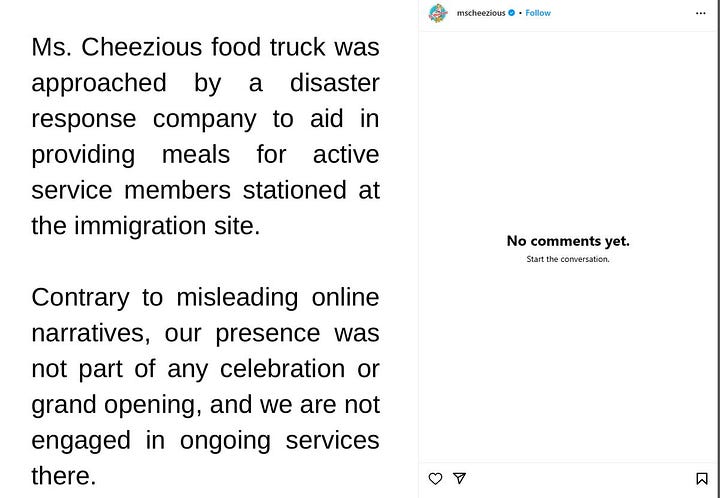
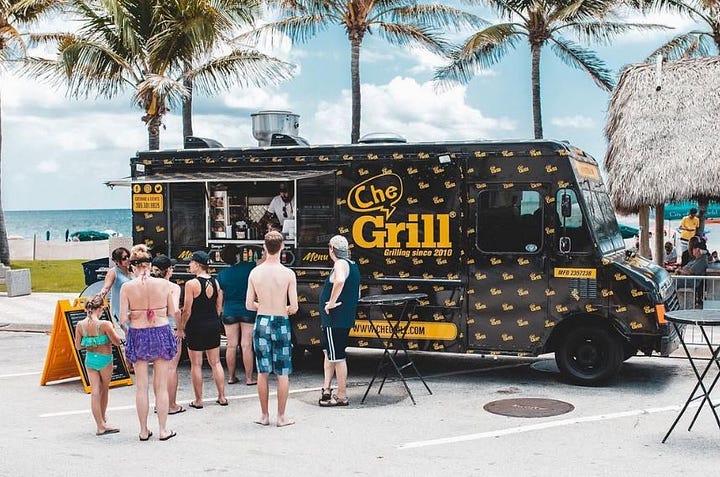
Stop Feeding the Machine
These vendors may not have built the cages, but they are comforting the captors while the captives starve. And it’s not just about food—it’s part of the mind games Florida is playing with those detainees.
Inside, detainees describe lights blazing 24 hours a day so they can’t tell day from night (AP News). Lawmakers who toured the site confirmed there is no ventilation, no air conditioning, and suffocating humidity—“unbearable… like punishment just being inside” (Tampa Bay Times). Detainees have reported worms in their food trays and being forced to drink from toilets when clean water ran out (AP News).
These are not random oversights. These are conditions historically recognized as psychological torture—tactics reminiscent of what American POWs described enduring at the infamous Hanoi Hilton: constant light, heat, and deprivation designed to break people down.
👉 Tell them you see it.
👉 Tell them you won’t buy from them until they publicly refuse these contracts.
Elote Lovers: Instagram



